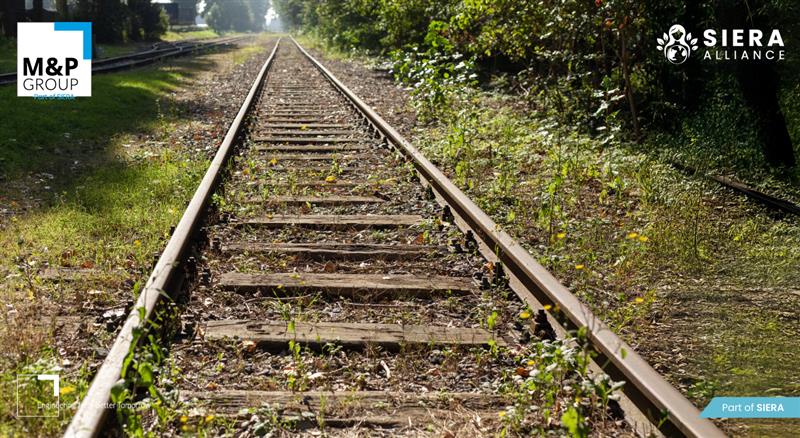This is where soil science construction supervision (BBB) comes into play – a legally regulated process that ensures valuable soils are preserved, groundwater resources protected, and ecological standards upheld during construction. M&P Ingenieurgesellschaft GmbH – part of SIERA – has been entrusted with this important task for Section 6 of the planning approval process (PFA 6) and is overseeing the project from the construction phase through to aftercare.
A central element of this transformation is the environmentally friendly expansion of the 88-kilometer railway line between Lübeck and Puttgarden. The new double-track and electrified line is designed not only to significantly reduce travel times but also to strengthen rail transport, cut CO₂ emissions, and set new standards in soil protection.
This is exactly where the Soil science construction supervision (BBB) This is a legally regulated procedure that ensures that valuable soils are preserved, groundwater resources are protected and ecological standards are met during construction work. The M&P Engineering Company Ltd. part of SIERAwas entrusted with this responsible task in the Planning approval section 6 (PFA 6) and accompanies the project from the construction phase through to aftercare.
Project Goals & Environmental Impact: Efficient Connectivity with Environmental Responsibility
The fixed Fehmarnbelt Crossing is far more than a structure – it is a symbol of modern infrastructure that unites economy and ecology. The project aims to improve transport connectivity between Germany and Denmark, reduce travel times, strengthen rail transport, and promote climate-friendly freight transport.
1. Faster Connections Between Metropolises
With the double-track, electrified expansion of the railway line from Lübeck to Puttgarden, a central component of the "Vogelfluglinie" is emerging. The benefits are clear:
- Reduction of travel time between Hamburg and Copenhagen from almost 5 hours to around 2 hours and 30 minutes.
- Halving of regional travel time between Lübeck and Fehmarn – from 88 minutes to just 49 minutes.
- Increased frequency and connection options for long-distance and regional trains.
These time savings not only provide more comfort for travelers but also strengthen the economic interconnection of both countries.
2. More Freight on Rail – Fewer Emissions
A key environmental aspect of the project: the expansion of climate-friendly transport routes.
- The new rail route for freight trains saves 160 kilometers compared to the previous route.
- This significantly reduces CO₂ emissions, as transport is shifted from road to more energy-efficient rail.
- Additionally, noise levels and fine dust pollution decrease in nearby residential areas.
According to EU Commission studies, a freight train emits up to 80% less CO₂ than a truck for the same transport output. These savings directly improve the climate balance.
3. Sustainable Regional Development
The connection also creates social and economic opportunities for the border regions:
- Closer economic integration of Ostholstein (DE) and Lolland-Falster (DK)
- Tourism incentives through improved accessibility on both sides
- Strengthening of rural areas through better mobility options
The region becomes more interconnected not only geographically but also culturally and economically.
The 6 Phases of Soil Science Construction Supervision (BBB)
Soil science construction supervision is a multi-stage, legally regulated process that ensures soil and groundwater protection is maintained during all construction phases. The legal basis is DIN 19639 "Soil Protection in the Planning and Implementation of Construction Projects," supplemented by provisions from the 2023 Ordinance on Substitute Building Materials and respective planning approval decisions.
The tasks of BBB are divided into six consecutive phases – from planning to aftercare. Depending on the project, BBB may start in a later phase or remain active throughout the entire project duration.
Phase Overview of the BBB
| Phase | Designation | Core tasks of the BBB |
| 1 | Planning Approval | Creation of a project-specific soil protection concept, identification of sensitive soil areas, integration into planning documents. |
| 2 | Tendering | Support in describing soil protection-relevant services in tender documents. |
| 3 | Construction Phase | Supervision of soil-conserving measures on site, trainings, inspections, recommendations. |
| 4 | Recultivation | Technical support for restoring natural soil functions, assessment of soil quality. |
| 5 | Interim Management | Assessment and support of temporary uses or storage, prevention of consequential damage. |
| 6 | Aftercare / Follow-up Use | Evaluation of recultivation success, recommendations for permanent land use, creation of final reports |
This systematic structure ensures that soil protection is not a secondary matter but an integral part of the construction process – whether it's a road, railway, or tunnel project.
Unified Standard for Complex Construction Processes
The clear structure also helps authorities, developers, and project partners to track the progress of soil science supervision. At the same time, it serves as a quality control tool for ensuring compliance with legal and ecological requirements.
M&P in the Fehmarnbelt Crossing – Tasks in Phases 3 to 6
At Planning approval section 6 (PFA 6) the fixed link across the Fehmarnbelt, the M&P Ingenieurgesellschaft - part of SIERA, with the realisation of the pedological construction supervision Phase 3 the actual construction work. From here, M&P provides continuous support for the project right through to completion. Phase 6in which the recultivation success is evaluated and aftercare is ensured.
Phase 3: Supporting On-Site Construction Implementation
Before the actual construction work began, M&P carried out a detailed pedological mapping according to KA5 and Penetrometer measurements according to DIN 19662 through. The theoretical assumptions of the soil protection concept were thus real measurement data and clearly localised sensitive soil areas.
During the construction phase, M&P’s BBB responsibilities included a wide range of tasks, such as:
- Regular site inspections to monitor construction progress in sensitive soil areas
- Instruction of subcontractors and construction personnel on soil protection (e.g., excavation depths, compaction, topsoil removal)
- Raising awareness among site personnel for environmentally responsible practices
- Determination of soil moisture to adjust machinery use (e.g., avoiding heavy equipment on wet soils)
- Advising on construction procedures, such as optimized topsoil storage or routing around sensitive zones
- Sampling of soil and water for lab analysis and documentation
- Reporting and documentation for authorities in accordance with Federal Railway Authority (EBA) regulations
- Participation in weekly environmental meetings, interface coordination, expert opinions, and concept development
Phases 4 to 6: From Recultivation to Aftercare
Even after the construction phase, M&P Ingenieurgesellschaft remains active:
- In Phase 4, M&P provides technical guidance during recultivation – e.g., reuse of humus-rich topsoil and restoration of natural soil functions.
- De Phase 5 assesses M&P Temporary uses such as temporary storage facilities or construction site access roads for their environmental compatibility.
- In Phase 6, the team evaluates the success of recultivation, oversees follow-up use, and ensures that no gradual soil damage goes unnoticed.
A Key Link – Between Site and Authorities
M&P Ingenieurgesellschaft - part of SIERA, acts as the Independent, expert body. It is not the contractor of the construction companies, but acts on behalf of them. in the public interest - as a professionally sound bridge between the client, authorities and environmental protection requirements.
Their guiding principle:
“Prevention instead of repair” – prevent soil damage rather than retroactively remedy it through costly measures.
Frequently Asked Questions About Soil Science Construction Supervision
1. What exactly is Soil Science Construction Supervision (BBB)?
BBB is an independent monitoring and consulting procedure to ensure soil protection in construction projects. It accompanies the project from planning through execution to aftercare – with the goal of preserving soil functions, minimizing interventions, and maintaining ecological standards.
2. When is BBB required?
BBB is usually mandated by the relevant authority – especially for:
- Major projects involving significant soil intervention (e.g., rail routes, highways)
- Sensitive soils or groundwater protection zones
- Projects subject to planning approval decisions
- Projects governed by the 2023 Ordinance on Substitute Building Materials
3. Which laws and standards apply to BBB?
Key legal foundations include:
- DIN 19639: Soil Protection in the Planning and Implementation of Construction Projects
- DIN 19662: Determination of Soil Strength Using Penetrometer
- Federal Soil Protection Act (BBodSchG)
- Federal Soil Protection and Contaminated Sites Ordinance (BBodSchV)
- 2023 Substitute Building Materials Ordinance
- Planning approval decisions and state-specific regulations
4. What distinguishes BBB from an environmental report?
An environmental report is typically one-time and preparatory. BBB, on the other hand, is continuously involved, participates in construction meetings, conducts site visits, and responds flexibly to construction changes. It ensures on-site implementation of soil protection measures.
5. Is BBB independent?
Yes. BBB is an expert-independent and neutral body in the interest of soil protection. It acts as a bridge between developers, contractors, and authorities – with a focus on prevention and quality assurance.
6. What concrete benefits does BBB offer for a construction project?
- Early damage prevention through consultation and monitoring
- Compliance with legal requirements without delays
- Documentation for approval authorities
- Transparency and trust among stakeholders and the public
- Cost savings through proactive environmental protection instead of later remediation
Conclusion: Sustainability Starts in the Soil – and on the Construction Site
The fixed link across the Fehmarnbelt is not only a milestone in European transport infrastructure, but also an example of how modern engineering projects can be realised with the highest environmental standards. The Soil science construction supervision (BBB) through the M&P Engineering Company shows how technical know-how, legal expertise and ecological responsibility are seamlessly intertwined.
From measuring soil moisture to post-construction care – no detail is left to chance. Rather than repairing damage afterward, BBB focuses on proactive planning, thorough documentation, and continuous consultation. The result: protected soils, safe construction processes, and satisfied stakeholders.
BBB is not a bureaucratic add-on but a crucial success factor for sustainable construction projects – now more than ever.
Planning an infrastructure project with high environmental standards?
The M&P Ingenieurgesellschaft - part of SIERA accompanies you from planning to aftercare - with certified expertise, tried-and-tested solutions and a clear focus on sustainability.
📩 Contact us for a non-binding consultation – and bring your project to a safe, efficient, and environmentally sound outcome.

